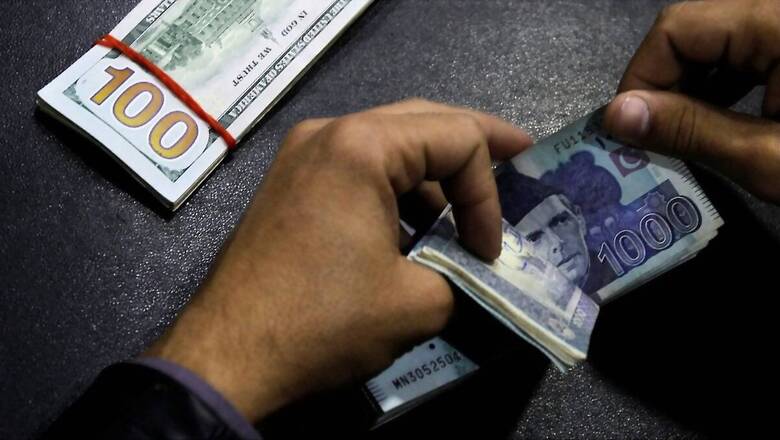
views
Pakistan is edging closer to a default as the country is facing an unrest following Imran Khan’s arrest and the IMF delaying the bailout by four months.
Amid the economic and political crisis in Islamabad, top 100 businessmen in Pakistan have issued a stark warning to the government about the increasing default risks and its impact on the business environment.
They have opposed the continuation of the super tax and voiced their concerns about the imposition of up to 7.5% income tax on their retained profits.
Ehsan Malik, CEO of the Pakistan Business Council (PBC), representing the country’s 100 largest manufacturers, said there is a significant default risk and the government should not expect new investments.
Pakistan’s industrial sector is already burdened, paying approximately 56 percent of total taxes despite its 20 percent share in the economy.
Pakistani rupee, after plunging to Rs 308 per dollar in the open market, has become the weakest currency in South Asia.
The currency recently reached the weakest level in South Asia and the Sri Lankan currency overtook the Pakistani rupee. While the Sri Lankan rupees is at 304 against the US dollar, the Pakistani rupee has fallen to 308.
Meanwhile, there have been warnings of a massive drop in the Pakistani rupee as the analysts have forecasted another decline of 20 percent.
Economists believe that the rupee will likely fall if the uncertainty and instability continue and the International Monetary Fund (IMF) delays bailout package further.
The rupee may slump to as low as 350 against dollar in June if Pakistan fails to secure IMF bailout. Pakistan is expecting a $6.5 billion bailout package, which the IMF approved in 2019 and is critical for Pakistan to avert defaulting on external payment obligations.
Pakistan’s foreign exchange reserves, which are at a dangerously low of $4.3 billion, have been steadily declining and a large quantity of foreign currency is needed to cover import costs and pay off foreign debt.
By the end of June, Pakistan has to repay $3.7 billion in foreign debt. It also requires an additional $3.7 billion each month to guarantee the smooth import of necessities.
Over 20,000 letter of credits are pending for clearance in State Bank of Pakistan, but the bank is not able to clear the import bills due to shortage of dollars, sources said.
Moreover, Chinese and Malaysian firms are now demanding advance payments from Pakistani traders as they are not no longer trusting Pakistan’s economic system, sources added.
In case Pakistan defaults, the country will see a loss of access to international markers, trading and foreign bonds.
The country will also face trade restrictions and will witness hyperinflation. The default will have a worst implications for the domestic banking sector and all commercial banks will face defaults.
The GDP of Pakistan will also contract in case of default and there will be a steep devaluation of Pakistani rupee. Islamabad may also face lawsuits, sanctions and the rating will downgrade.



















Comments
0 comment